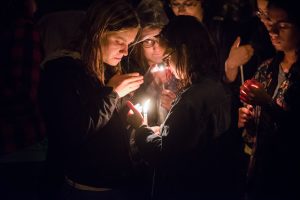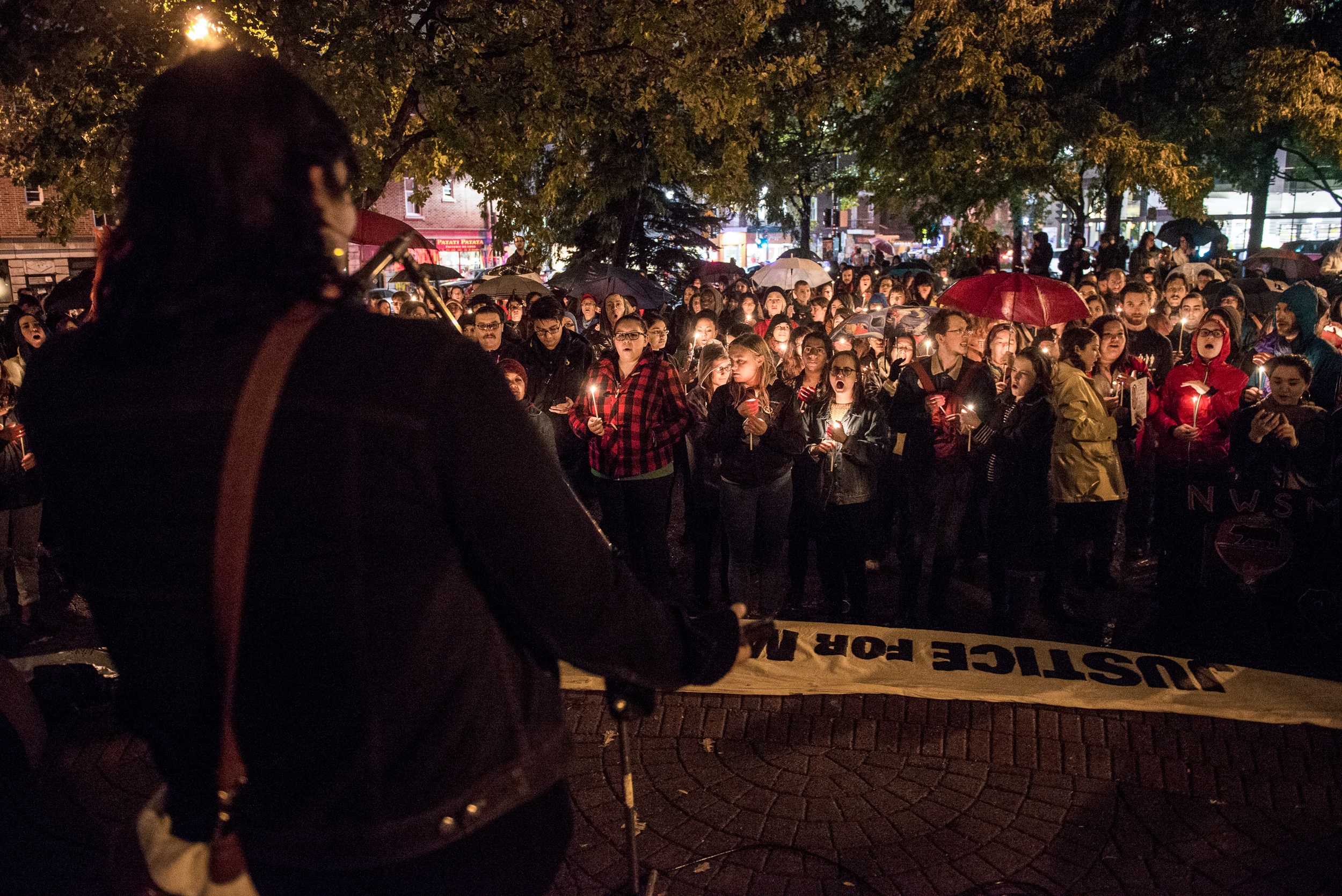Montrealers stand in unity with aboriginal women
Over a thousand people withstood the grim weather on Oct. 4 to politicize public space, signal their solidarity, and create greater awareness of the disproportionate rates of violence experienced by Canadian aboriginal women.
Founded nine years ago by Bridget Tolley during attempts for a public inquiry after a Sûreté du Québec cruiser killed her mother, Gladys Tolley, in 2001, the Memorial March and Vigil for Missing and Murdered Aboriginal Women held each Oct. 4 has become the national day of action for missing and murdered indigenous women and girls. This year over 130 vigils were held across the country, united in publicizing the plight native women face in receiving adequate help and, for those beyond help, justice.
‘‘I find it important as a white woman to come support the struggle of native women even though I am aware that it is they who must lead this fight,’’ said Meggie Huot, an intern at the Quebec Women’s Federation.

The RCMP lists the number of confirmed missing and murdered native women at 1,181 cases since 1980, though the actual number is almost certainly higher; native activists and organizations put the number at nearly 3,000 cases.
The RCMP stated in a report released in May that although native women form only 4.3 per cent of the Canadian population, they account for 16 per cent of female homicides and 11.3 per cent of disappearances. In the press release for the march, a report by Amnesty International is quoted, stating that indigenous women in Canada “five times more likely than other women to die as the result of violence.’’
Few ever gain any significant coverage, though nne noticeable difference was the murder of 15-year-old Tina Fontaine in Winnipeg last summer, which shook Canada into a renewed call to action and caused Liberal leader Justin Trudeau to start a petition for a public national inquiry.
Montreal’s march, which began at Place Émilie-Gamelin and walked to the Parc des Amériques on the corner of Rachel St. and St. Laurent Blvd, was organized by Missing Justice, a chapter of Concordia’s Centre for Gender Advocacy, in collaboration with Quebec Native Women. Fittingly, at one point it passed the mural for missing and murdered indigenous women on the corner of Ontario St. and St. Laurent Blvd., recently painted by artist Fanny Aishaa with Monk-e and GUKO in 2014. The event ended with a candlelight vigil and the ritual of sharing tobacco. The CGA’s Promotions Coordinator Maya Rolbin-Ghanie put the number at over 1,300 people attending the march.
According to Alana Boileau, justice and public security coordinator for Quebec Native Women, the march allowed members of the public to pay their respects and demonstrate their solidarity with victim families. It was also a way to learn more about the demands for a public national inquiry, which the Harper government has so far refused to respond to, and an opportunity to increase awareness of the difficulties native women face every day. Volunteers distributed postcards made by Amnesty International to raincoat-clad groups demanding an inquiry from the Harper government.
For those inspired to take action, Boileau suggested different ways to get involved. Politically, the Quebec Women’s Federation has made mobilization kits available online for Canadians wishing to write a letter to Prime Minister Stephen Harper and other politicians asking for a public national inquiry. Another way to get involved is by simply interacting with First Nations individuals and local communities in and around Montreal.
‘‘The struggle of indigenous women is the struggle of all women. To ask for a public inquiry is a question of dignity for women and indigenous peoples. Also because it touches every woman in Quebec,’’ said Françoise David, spokesperson of Québec Solidaire, who was just one among other prominent speakers who joined Tolley.
Also in attendance were Viviane Michel, president of Quebec Native Women, Alexa Conradi, president of the Quebec Women’s Federation, and Mohawk activist and artist Ellen Gabriel. Two Montreal-based musical groups, Buffalo Hat Singers and members of Odaya, performed at the event.




